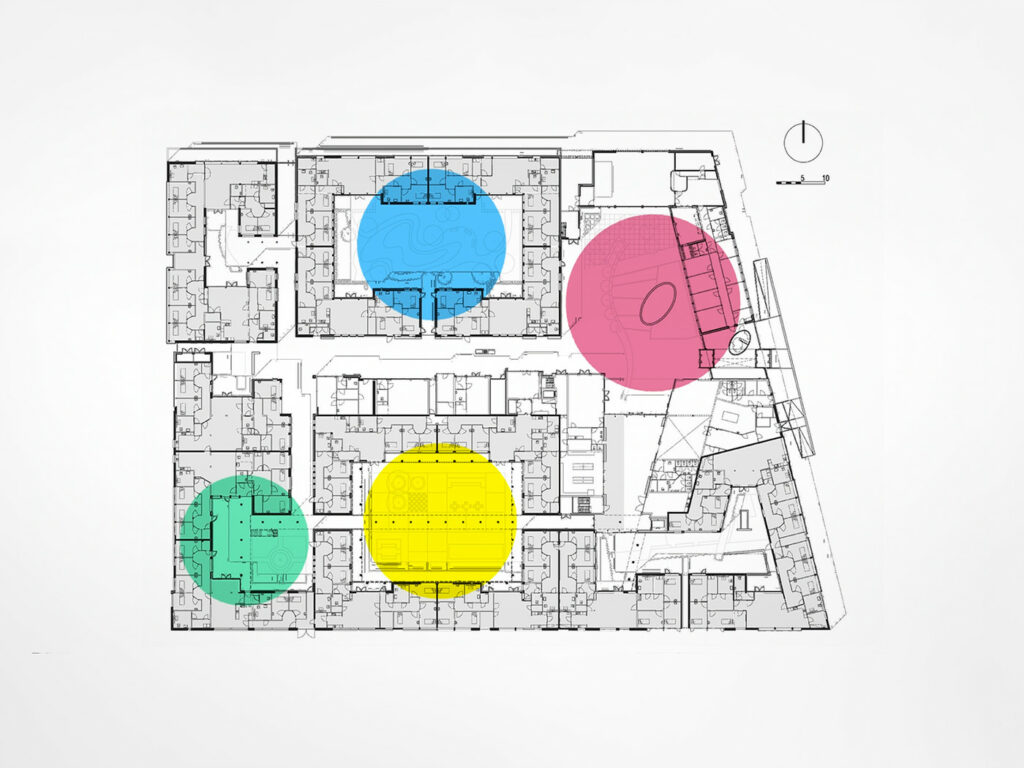
"Peo­ple suf­fer­ing from demen­tia lose their abil­i­ty to take an active part in con­ver­sa­tions, every­day activ­i­ties, and their own phys­i­cal upkeep. They are prone to sud­den mood swings, irri­tabil­i­ty, depres­sion, and anx­i­ety. They may be strick­en with delu­sions and wild hal­lu­ci­na­tions. All of these things can be under­stand­ably upset­ting to friends and fam­i­lies. There's a lot of stig­ma sur­round­ing this sit­u­a­tion."
"The Hogeweyk, a planned vil­lage just out­side of Ams­ter­dam, offers a dif­fer­ent sort of future for those with severe demen­tia. Rather than group­ing res­i­dents togeth­er in a sin­gle insti­tu­tion­al set­ting, they are placed in groups of six, with every­one inhab­it­ing a pri­vate room and shar­ing com­mon spaces as they see fit. The com­mon spaces open onto out­door areas that can be freely enjoyed by all housed in that "neigh­bor­hood"."
People suffering from dementia lose their ability to participate in conversations, perform everyday activities, and manage personal physical upkeep. Mood swings, irritability, depression, anxiety, delusions, and hallucinations commonly occur and can be upsetting to friends and families. Caregiving for a spouse or parent with dementia often causes overwhelming isolation for caregivers, while those with severe cognitive decline experience profound isolation themselves. Residential memory care facilities frequently become the eventual living situation for people with extreme dementia. The Hogeweyk, a planned village outside Amsterdam, offers an alternative model that groups residents into households of six, grants private rooms, and provides shared indoor and outdoor common spaces to support overall happiness and wellbeing.
Read at Open Culture
Unable to calculate read time
Collection
[
|
...
]